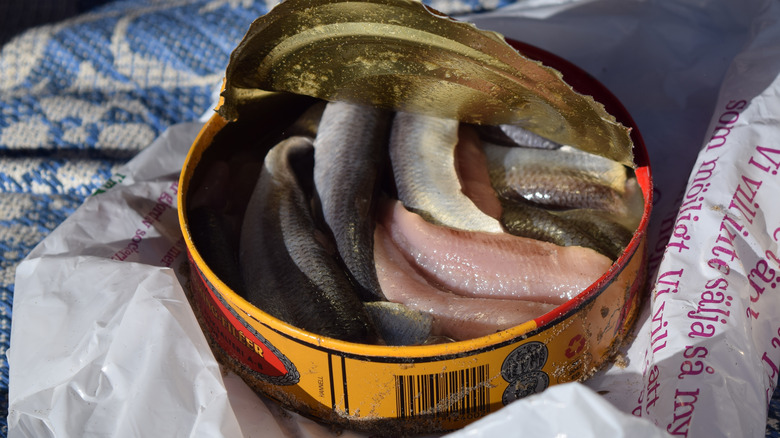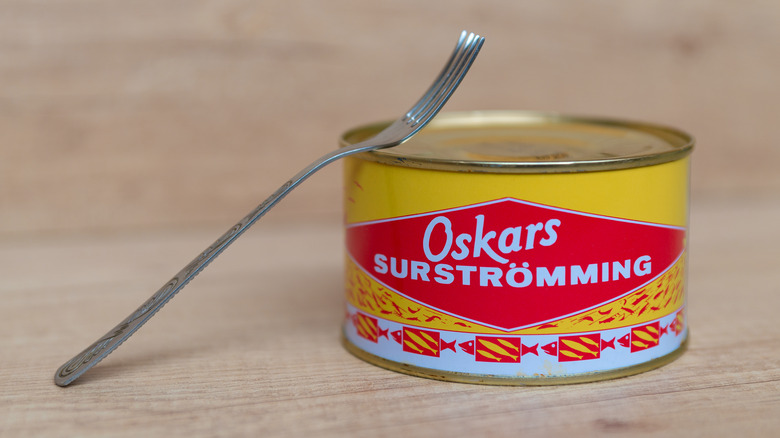Surströmming: The Fermented Swedish Herring Banned By Several Airlines
There are some foods that really stink — literally. Meanwhile, some of these fetid foods are packaged in such a volatile fashion they're deemed illegal in certain scenarios. Surströmming, for instance, is a traditional Swedish delicacy that involves the months-long fermentation of Baltic Sea herring. The result is an overtly pungent canned fish that has gained notoriety for its distinct aroma, described by some as a musty mix of vinegar, rotting fish, and even soiled diapers.
Like köttbullar, knäckebröd, and smörgåstårta, this fermented fish is a legend within the nation's cuisine and is often considered one of the Swedish foods you need to try before you die. Despite its stifling fragrance, many Swedes wholeheartedly appreciate surströmming for its unique taste and cultural significance. It is even enjoyed at festive gatherings and on special occasions. Perhaps the most shocking aspect of surströmming, though, is that it cannot board aircraft with other luggage.
Somewhat surprisingly, the ban on surströmming by several commercial airlines has very little, if anything, to do with its intense smell. The infamous prohibition stems from the fact that surströmming cans are deemed pressurized goods, which are at risk of expanding and rupturing due to the internal chemical process. Essentially, the buildup of gases during transportation poses a safety hazard, leading to their categorization as potentially explosive materials.
Surströmming is a flavor explosion — and perhaps a literal one
The banishment on surströmming was first administered in early 2006 by major aviation companies such as British Airways, Air France, Finnair, and KLM Royal Dutch Airlines. As one would imagine, the expulsion led to frustration, disappointment, and outrage among plenty of herring enthusiasts. Along with being lawfully prohibited from flying on a plane, the Swedish International Airport was also restricted from selling the tinned fish at any of its retailers.
The fermentation process that gives surströmming its acclaimed mega-briny palate generates carbon dioxide and other gases like hydrogen sulfide. When these gaseous substances cannot escape the can, the internal pressure increases, especially at high altitudes. So, surströmming's pneumatic issue, rather than its malodor, is the main concern for carriers. However, various surströmming experts have found this claim to be absurd. For instance, Ruben Madsen, the president and co-founder of Surströmmingsakademien (Surströmming Academy) in Sweden, has strongly contended that the ban is based on total fallacy.
While the herring's ban is rooted in alleged safety concerns, it hasn't diminished the indulgence's popularity in the Land of the Midnight Sun. Locals continue to revel in the acquired taste, even participating in surströmmingsskiva, an annual celebration during which Scandinavian communities lovingly savor the delicacy. Dedicated surströmming eaters not only appreciate its complex, polarizing flavor but proudly advocate for its right to globetrot.

